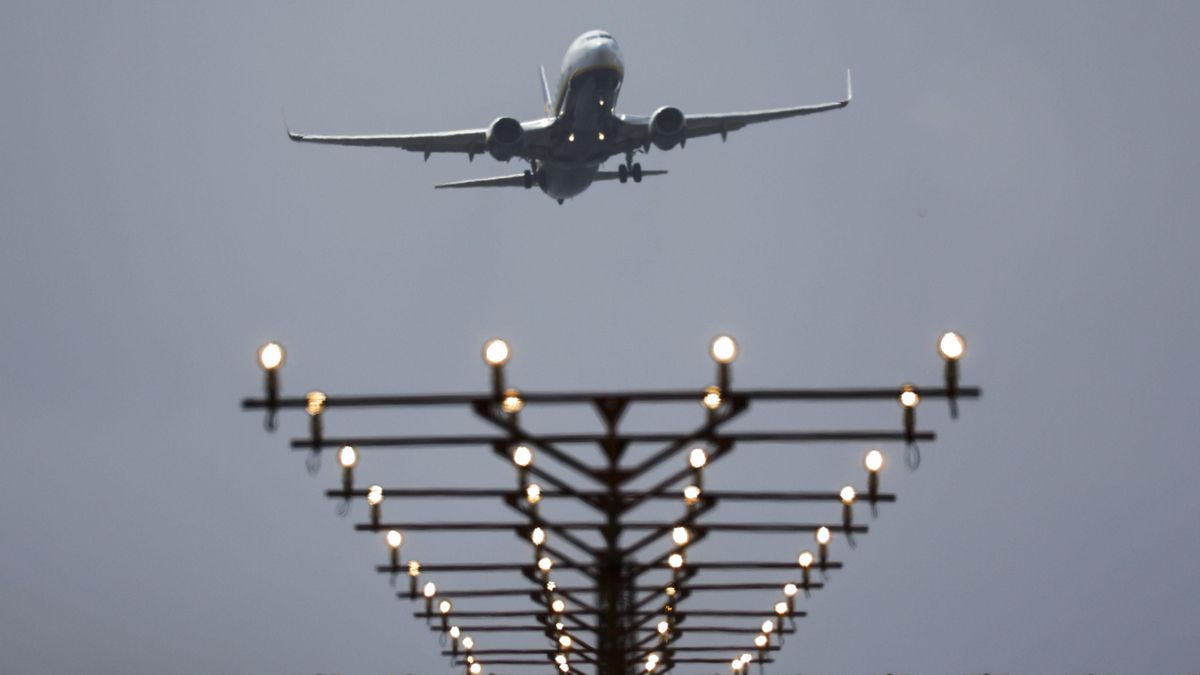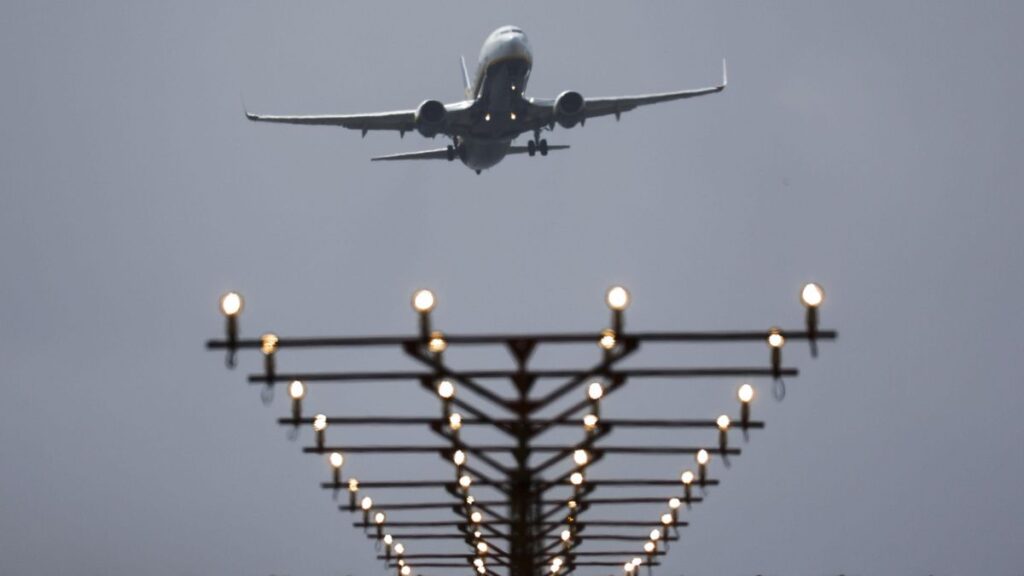Low-cost airlines scramble to fill the gap left by Ryanair
A major shift is underway in the skies over Spain’s Canary Islands. Low-cost airlines have launched an offensive to absorb the one million seats that Ryanair will cease to operate in the coming months. The Irish airline threatened this Friday to withdraw another million seats for next summer if Spanish airport operator Aena does not reverse its airport fee increase. So far, Vueling, Iberia Express, and Binter have already added approximately 434,000 additional seats compared to last autumn-winter season. Other carriers like Volotea and Wizz Air have also positioned themselves to absorb another part of the void left by Ryanair.
Just ten days ago, Ryanair announced a 16% reduction in its capacity this winter. It also revealed plans to close its base in Santiago de Compostela and suspend flights to Vigo and Tenerife North from January 1st. The airline had already cut 800,000 seats during the summer, bringing its total recent capacity reduction to nearly two million seats. This available seating could be reduced even further—to 2.8 million seats—next summer if the Irish airline’s threats materialize. Ryanair is criticizing Aena’s decision to increase fees by 6.5%.
New routes and increased capacity for the Canaries
In response to this situation, Vueling and Iberia Express, both part of the IAG group, have announced 190,000 additional seats for this winter, with a significant focus on the Canary Islands. Regional carrier Binter has scheduled around 240,000 extra seats, 100,000 of which will be from Tenerife North. Volotea and Wizz Air have reaffirmed their commitment to the Spanish market and expressed interest in expanding their presence. Wizz Air, for instance, plans to launch 40 new routes from Spain by March 2026.
Vueling announced this Tuesday that it will schedule 1.5 million seats for the upcoming winter season from Santiago de Compostela and Tenerife North, two of the airports most affected by Ryanair’s withdrawal. Tenerife North will see 89,000 additional seats for a total of 900,000—an 11% increase compared to 2024. This includes an extra daily frequency to Barcelona and Seville; three more weekly flights to Santiago, Málaga, and Alicante; and two additional weekly flights to Valencia. Seat capacity from Santiago will also increase by 15%, with 28 additional weekly flights to Barcelona, Palma, the Canaries, Seville, and Málaga. The airline will also reinstate its route to Alicante and offer new flights to Zurich, London-Heathrow, and Paris.
Canary Islands: The focus of new flight capacity
Following Ryanair’s decision to cut 600,000 seats at regional airports and 400,000 seats in the Canary Islands, other airlines have squarely focused on the archipelago. The local Canary Islands airline, Binter, stands out. This winter, it will operate a total of 984,349 seats connecting the islands with the Spanish mainland, the Balearic Islands, and international destinations. This represents a 33% increase in capacity compared to last year. However, airline sources told EFE that this operational plan had been in the works for some time.
Binter has scheduled 413,000 seats from Tenerife North, a 33% increase (100,000 more seats). This expansion includes new routes to Seville and Badajoz, alongside reinforced direct flights to Vigo, Valencia, and Asturias. Binter emphasizes that Ryanair’s announcement has not caused a complete rethink of its strategy, though it remains vigilant of market developments to analyze any “interesting opportunities” that may arise.
Government and industry response
Iberia Express has also launched its winter offer: 30,000 new seats to the Canary Islands between October and next January, a 5% increase year-on-year. This translates to 116 additional flights and 150 equipment upgrades on these routes, with half of the new capacity allocated to Tenerife North.
The Spanish Minister of Transport, Óscar Puente, stated this Tuesday that even if Ryanair “leaves” some airports, “other airlines will come in to replace it.” He used a Spanish proverb, “A rey muerto, rey puesto” (The king is dead, long live the king), to illustrate the point. This Friday, he reiterated that the government will not yield to “blackmail” after Ryanair’s CEO, Michael O’Leary, announced new cuts. For his part, the president of Aena, Maurici Lucena, accused the Irish airline of distorting the figures and simply wanting to make more money, “even if it is subsidized by taxpayers’ pockets.”
This airline drama unfolds against a backdrop of record-breaking success for Spanish airports. Aena’s facilities handled a historic 33.32 million passengers in August, a period that saw 262,001 aircraft movements—a 3.1% increase.


